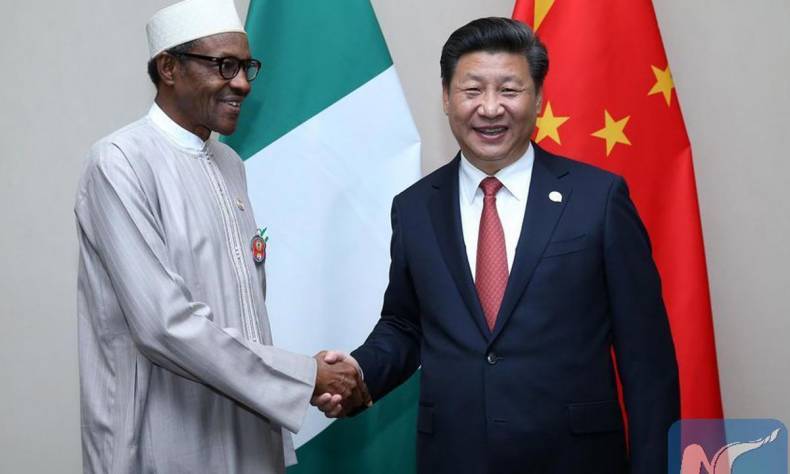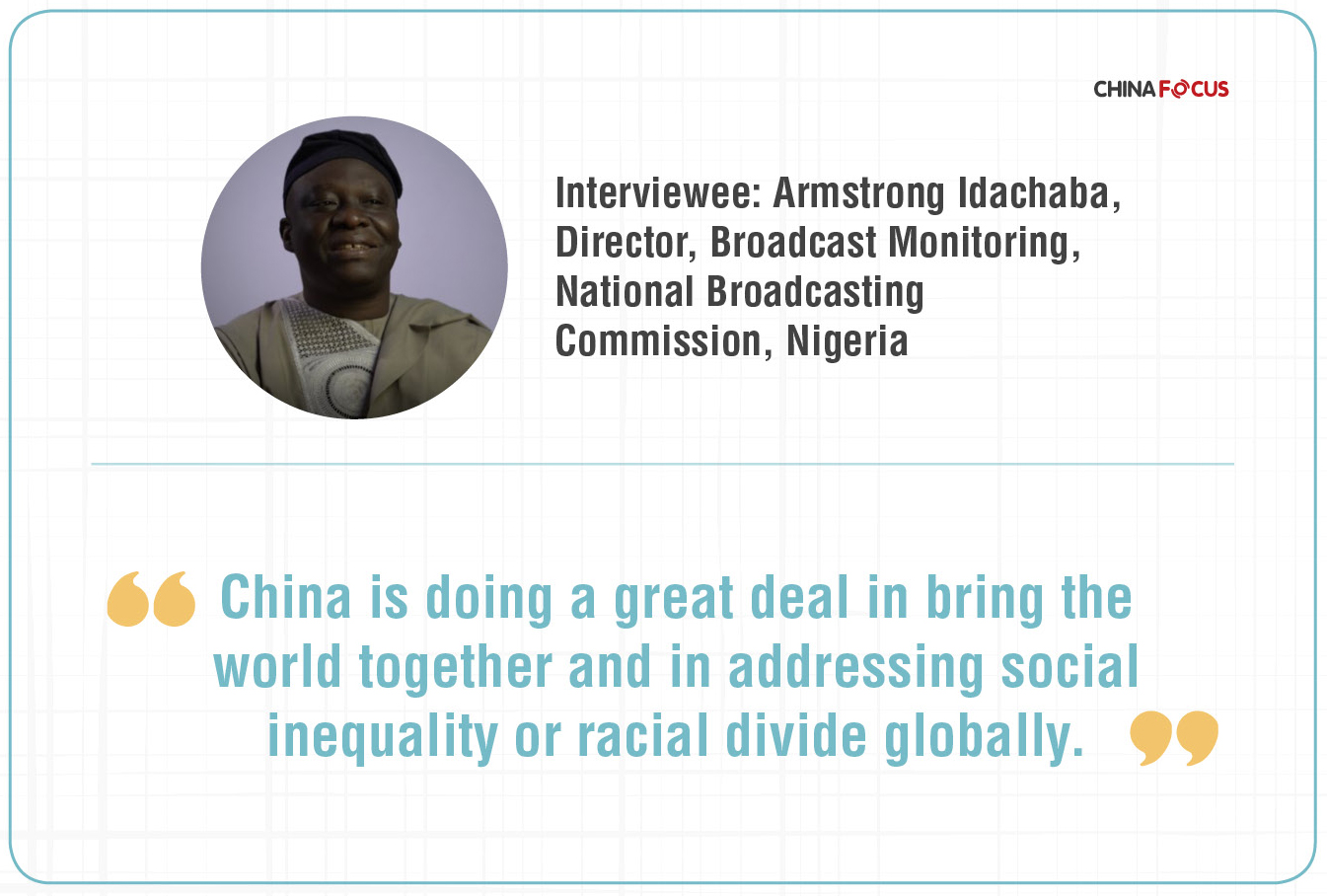
“The China-Nigeria Relationship Has a Promising Future”
Nigerians are very comfortable doing business with the Chinese. And our friendship and relationship holds a lot of promise for the future.
We Are One: When China Meets Africa
China Focus: First of all, could you introduce yourself and describe your job?
Armstrong Idachaba: I am the Director for Broadcasting in the National Broadcasting Commission of Nigeria, which is the sole regulatory body for broadcasting in the country. We monitor broadcast across the country and license all radio and TV stations. In addition, I also teach at some universities; I am a professor of Mass Communication.
China Focus: What was your first impression when you arrived in China?
Armstrong Idachaba: It was beyond what I had expected, I must say I’m really quite impressed. Chinese people are very organized, young people are very humble and people are very hard-working. That ethical value impresses me very much.
China Focus: What’s the media relationship between China and Nigeria?
Armstrong Idachaba: Fantastic! I think that the involvement of Chinese media in Nigeria has done a lot to propel not just creative elements, but also business elements. For example, in Nigeria, digital transition began with big cable television stations, mostly from South Africa, specifically, the DStv. The arrival of StarTimes, a private company from China, took the digitization process to the common people. StarTimes introduced DDTV, opening up the market which used to be exclusively dominated by DDTH.
So now we have digital content on the terrestrial that was largely facilitated by StarTimes. It created opportunities for Nigerian people to create more channels, with many young people now engaged. People who didn’t have an opportunity to broadcast before found a platform with StarTimes. Those who have talent in drama, sports, music or entertainment now have channels on the StarTimes bouquet. That is a great contribution to Nigeria’s industry.
In regards to the production of the platform, many people who wouldn’t have had the chance to get involved are now players, which has created new employment. I think that is the way to go forward. What I see now happening is the exchange of programs. Maybe someday we can make productions together, where you have Nigerian characters playing side by side with Chinese characters, which will help cultural integration.
China Focus: It has been said by some media that China has added different voices to the media landscape in many countries. What’s your take on this?
Armstrong Idachaba: Before China’s entry, the West more or less presented the world from its own Western perspective in the arts. The prism for global social engagement was from a Western view. The United States presented its movies and documentaries as if the world revolved around a U.S. space. But China has the understanding to say, “Look, the world is populated by different people.” And China is engaging the population. They are going to remote rural areas, they are trying to cut the cost of technology to make it accessible to ordinary people. So they are bridging the socioeconomic gap that otherwise would continue to expand. China is doing quite a great deal in bringing the world together and in addressing social inequality and the racial divide globally.
China Focus: But are these efforts welcomed by local people?
Armstrong Idachaba: Obviously yes, why not? Who doesn’t want good things? Wouldn’t you want to have access to digital content? Wouldn’t you want to have access to a telephone? Wouldn’t you want to have access to a good, clean airport? These are the areas that China is engaging in in most African countries, and Africans are very excited about it.
China Focus: How would you describe communication between China and Nigeria?
Armstrong Idachaba: The communication shows mutual respect; that is very important in any engagement. I think the bilateral relationship is also built on sincerity of purpose. Nigerians are very comfortable doing business with the Chinese. And our friendship and relationship holds a lot of promise for the future.
Interviewer: Cheng Yao
Editor: Elena
 Facebook
Facebook
 Twitter
Twitter
 Linkedin
Linkedin
 Google +
Google +











